Plastic bottle litter on beaches up 43%, conservationists say
- Published
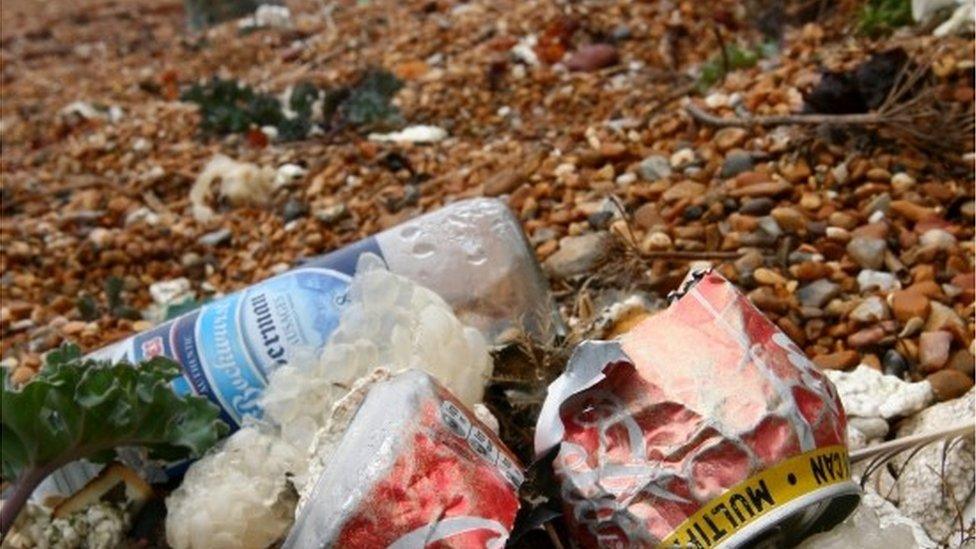
Conservationists say they found 160 plastic bottles for every mile of UK coastline cleaned last year.
The Marine Conservation Society said more than 8,000 bottles were picked up, external during its Great British Beach Clean Up in September, up 43% on 2014.
It wants deposit return schemes, which give money back to people who return empty bottles, to encourage recycling.
More than 6,000 volunteers collected and recorded litter along 340 beaches across the UK.
The MCS said putting a charge on the bottles of up to 20p, which gets refunded when they are returned, would change behaviour, and called for the UK government to explore the potential of such a scheme.
Lauren Eyles, the charity's Beachwatch manager, said: "The bottles we find on beaches are either dropped directly on to the beach, blown from land or sea, or end up there via rivers.
"The more we use as a nation, the more we'll see ending up on our shores."
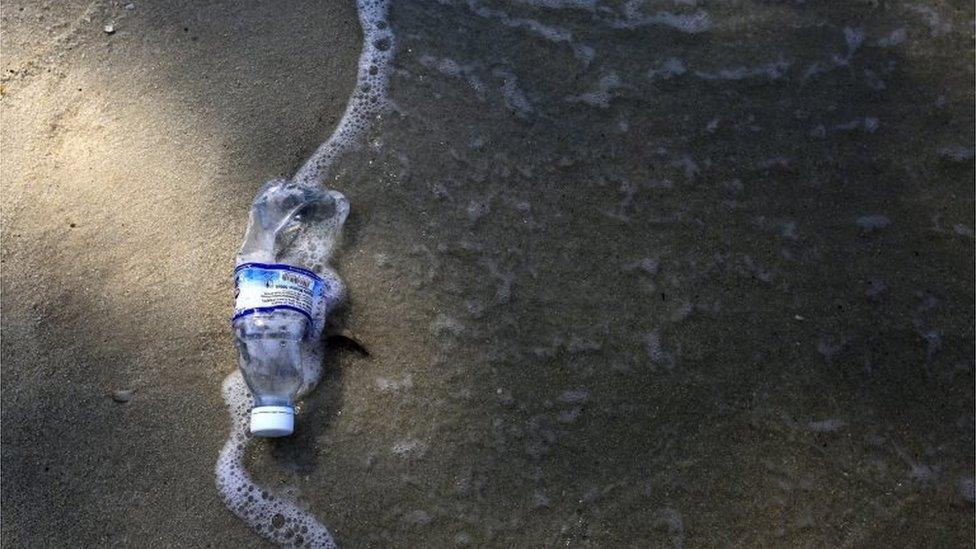
The survey also found:
Overall, there was a 34% rise in rubbish at the seaside - 3,300 pieces per kilometre -on 2014 levels
Small pieces of plastic topped the list of litter picked up, with 960 bits collected for each kilometre of beach cleaned - while bits of glass were the second most common rubbish found
Volunteers also found 197 crisp or sandwich packets and lolly or sweet wrappers for every kilometre of the seaside they combed
Other common litter included bottle caps and lids, string and rope, cotton bud sticks, cutlery, trays and straws, as well as fishing nets and cigarette stubs.
All countries within the UK saw an increase except Wales, where levels dropped after a record rise the previous year, the MCS said.
England saw record levels of litter across 189 beaches, with highest levels of rubbish - averaging 5,170 items per kilometre - in the South West.
The Channel Islands had the lowest levels of litter for the UK, but rubbish still increased by a fifth (22%) compared with 2014.
- Published19 March 2015
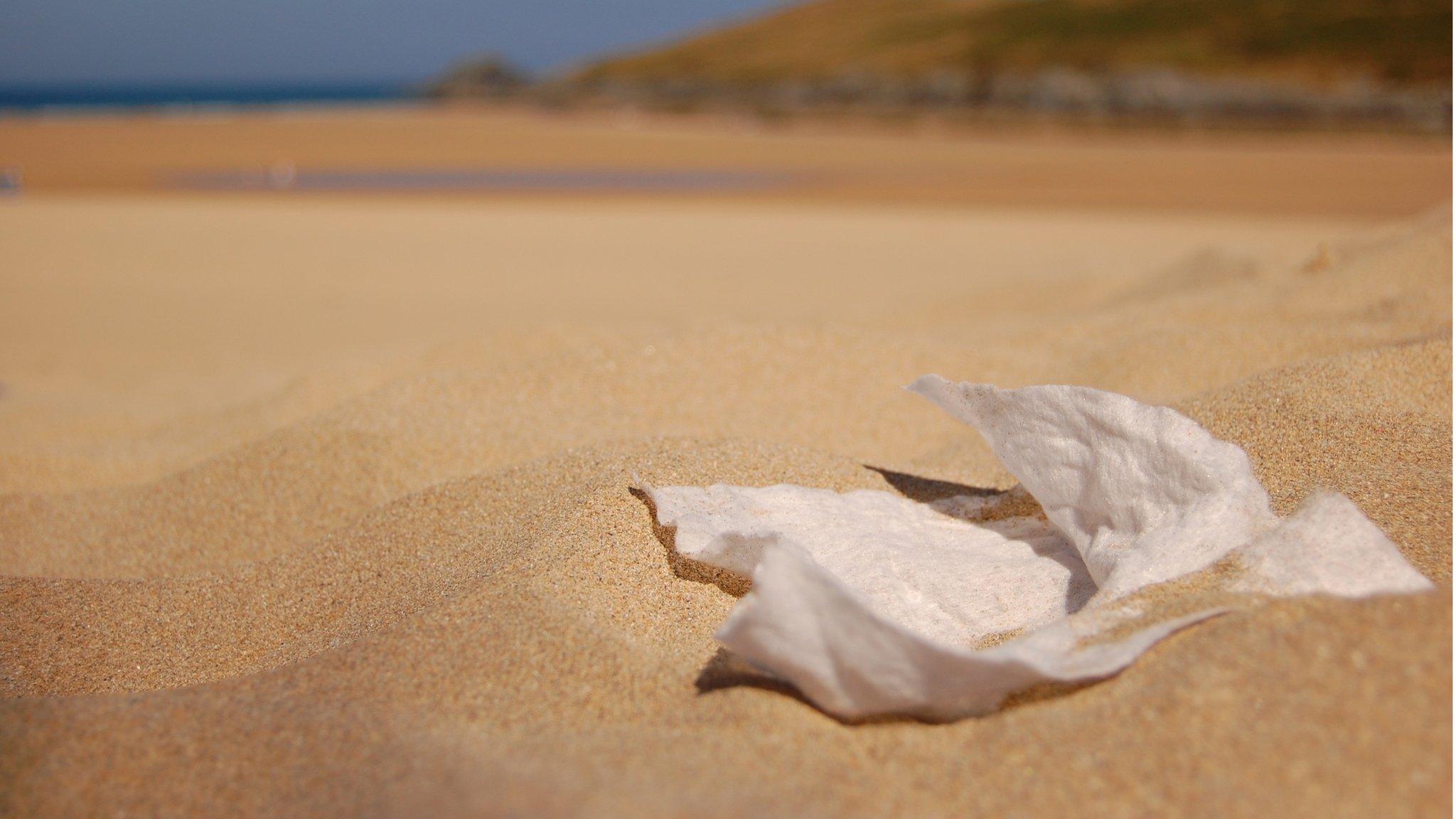
- Published3 January 2015
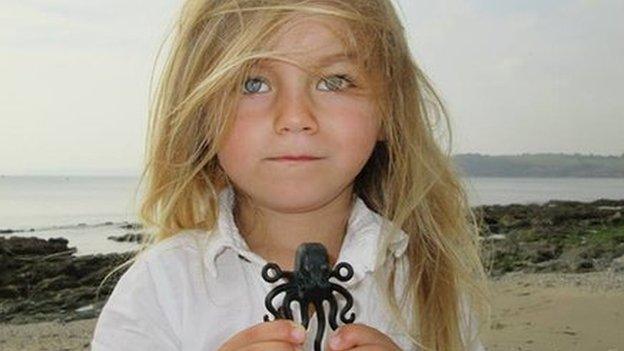
- Published5 January 2016
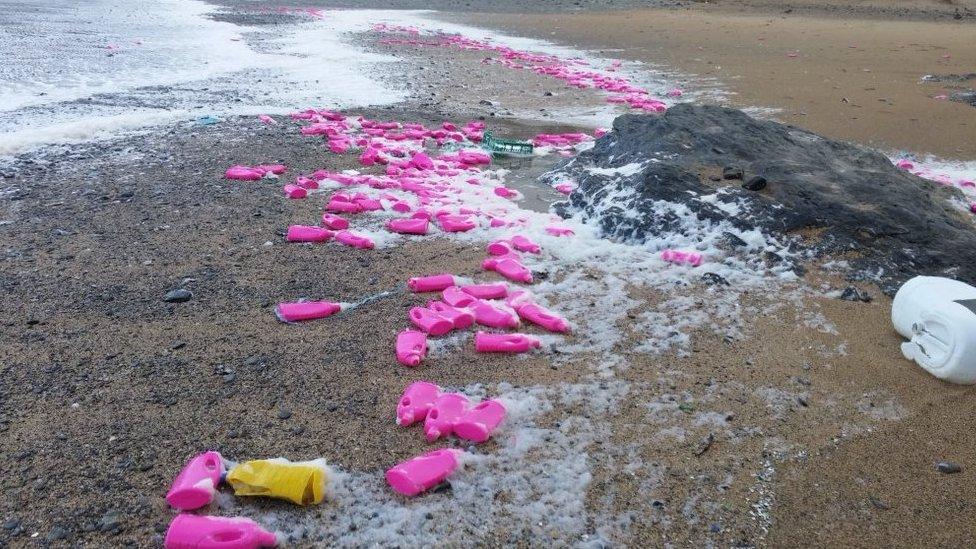
- Published22 March 2016
